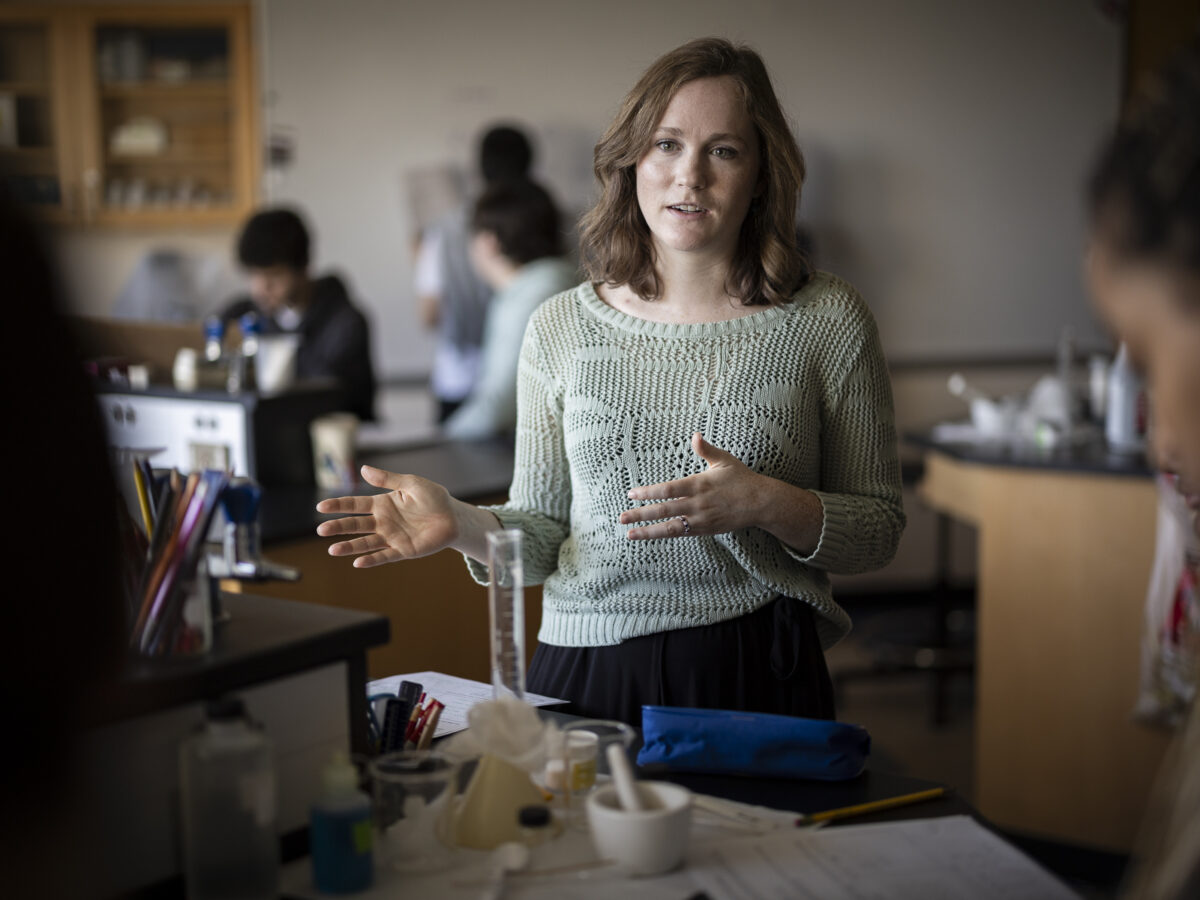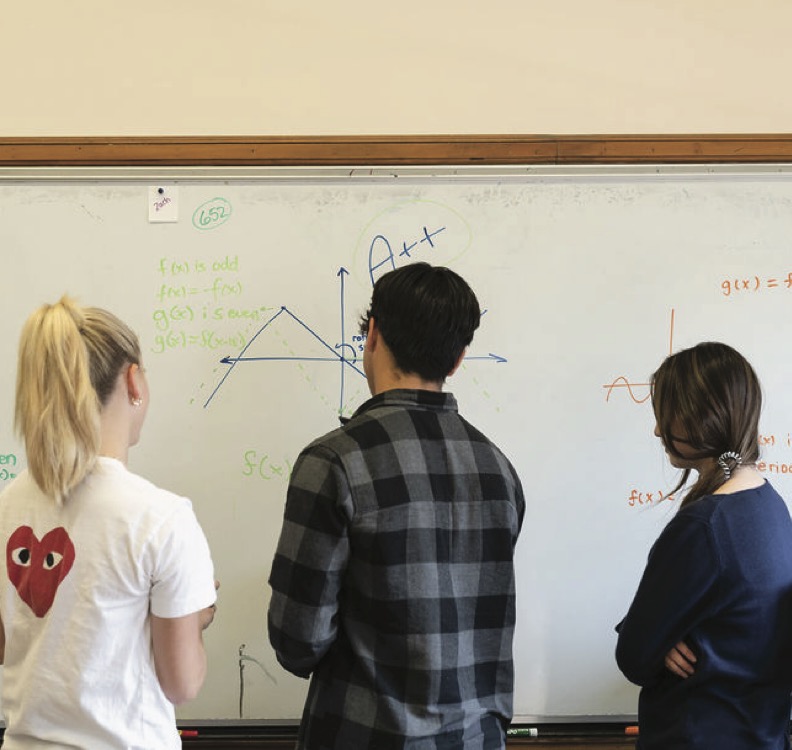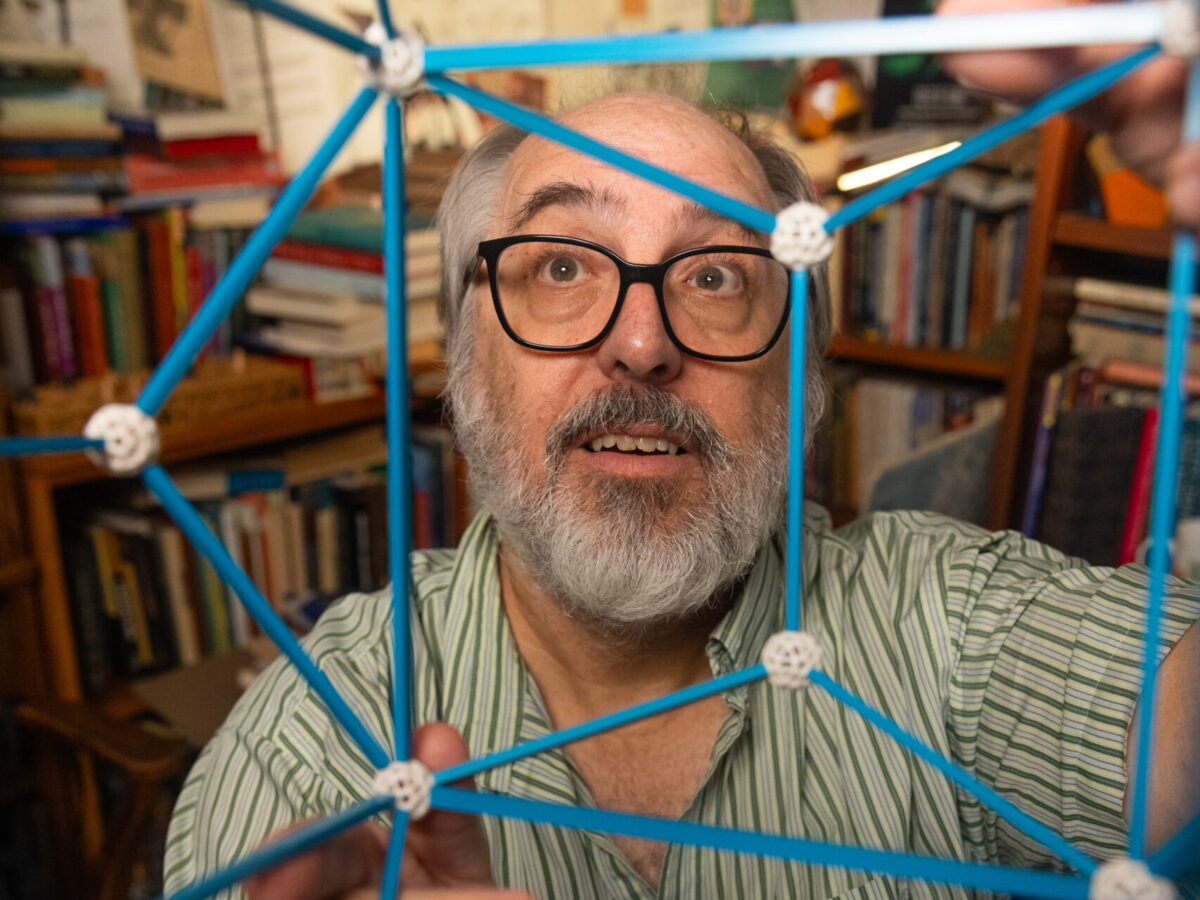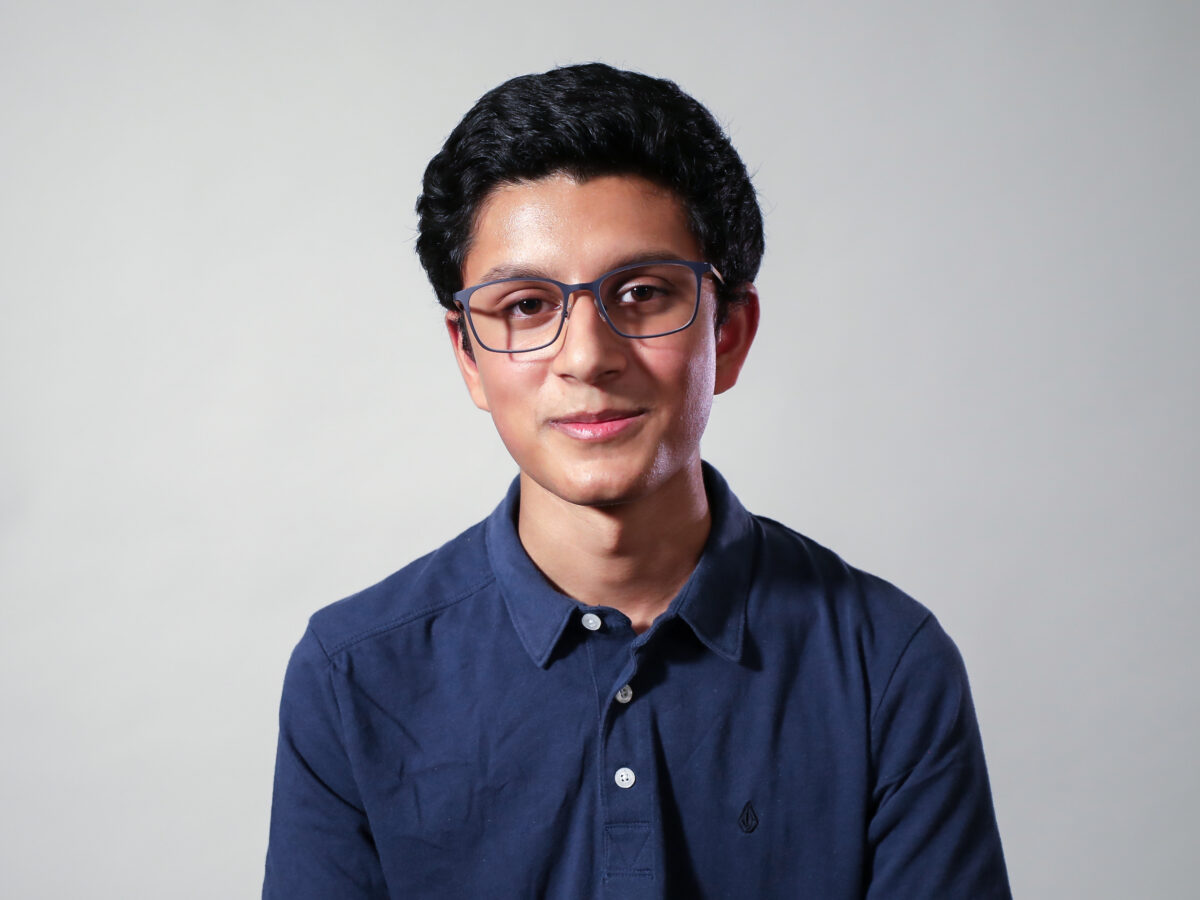Exeter Annotated:
Exeter Annotated:
A Cabin in the Clearing
The poetry of English Instructor Todd Hearon’s classroom
“There’s a story behind everything you see in this room,” Todd Hearon says, surveying the treasures in his Phillips Hall basement classroom. Throughout his life, including 21 years of teaching English at the Academy, he has picked up trinkets from his travels, oddities from long-forgotten campus storage rooms and gifts from grateful students. “A lot of the stuff I’ve just been carrying around with me for years,” he says.
Hearon has curated his subterranean space (“We’re six feet under,” he jokes) with warm tones and even a faux fireplace all meant to draw students into a setting that feels comfortable. “I think that if I had a room upstairs in some of the more ornate and stately classrooms,” he says, “I probably wouldn’t do all this.”
A playwright, poet, author and song writer, Hearon needs only to look at the collage of notable Irish poets above his desk or spin a Bob Dylan vinyl record on the corner turntable for inspiration. “This is kind of an extension of my home,” he says. “This is where I’ve written most of my books. I feel a sense of relief here.”

“There was a flood in 2006 and my classroom at that time was destroyed: all my books, everything. Anything that was below waist level couldn’t be salvaged because the water was septic. The only thing that survived was this Harkness table. This is one of the original Harkness tables, and a few legendary teachers have used it. It lifted and floated to the back of the room, like Noah’s Ark.”
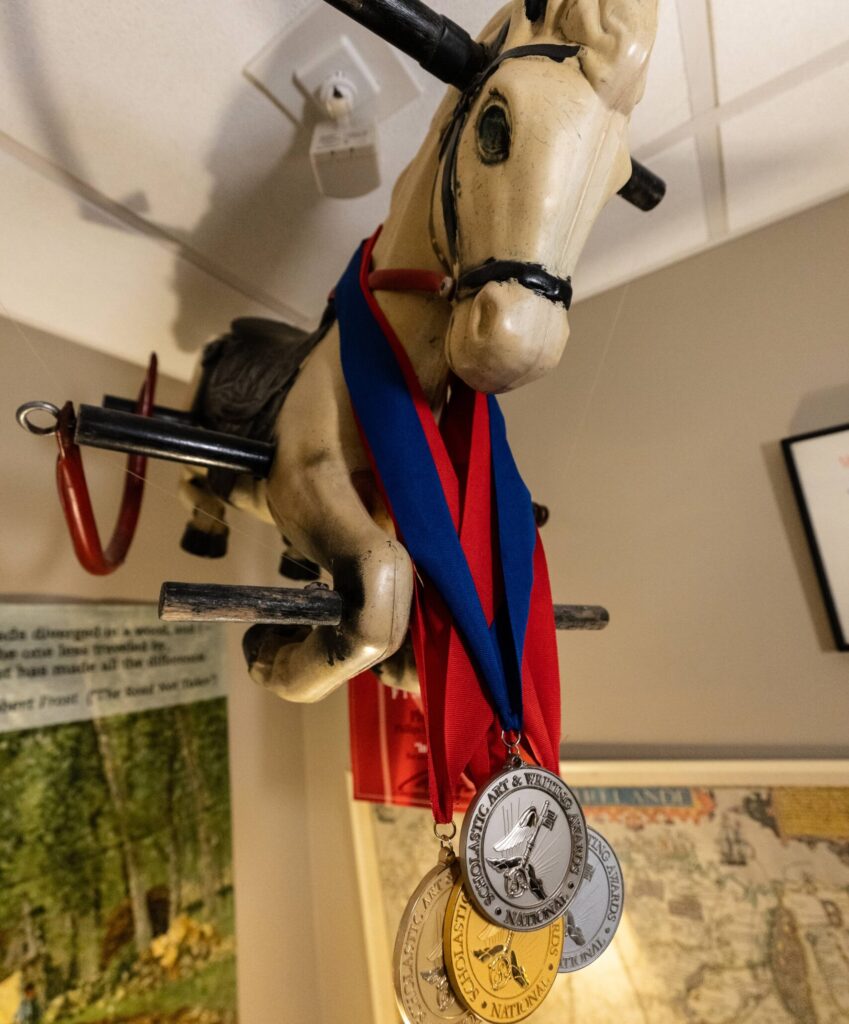
“This is ‘The Wonder Horse.’ I found it in a dumpster outside Phillips Hall years ago. I used to ride on one of these when I was a little boy, so I have a special affection for it. Also, the flying horse, Pegasus, is a symbol of poetry, right? The medals are all medals that students have won for their writing in the Scholastic Art and Writing Awards.”

“When I teach senior creative writing poetry, every time the students come into the room, the sign is appended to some object. It might be on the hornet’s nest, it might be on the stained glass, and they have to fashion a metaphor telling how poetry is a hornet’s nest or is stained glass. Lots of the objects in this room function in that way — as generative promptings for the imagination.”
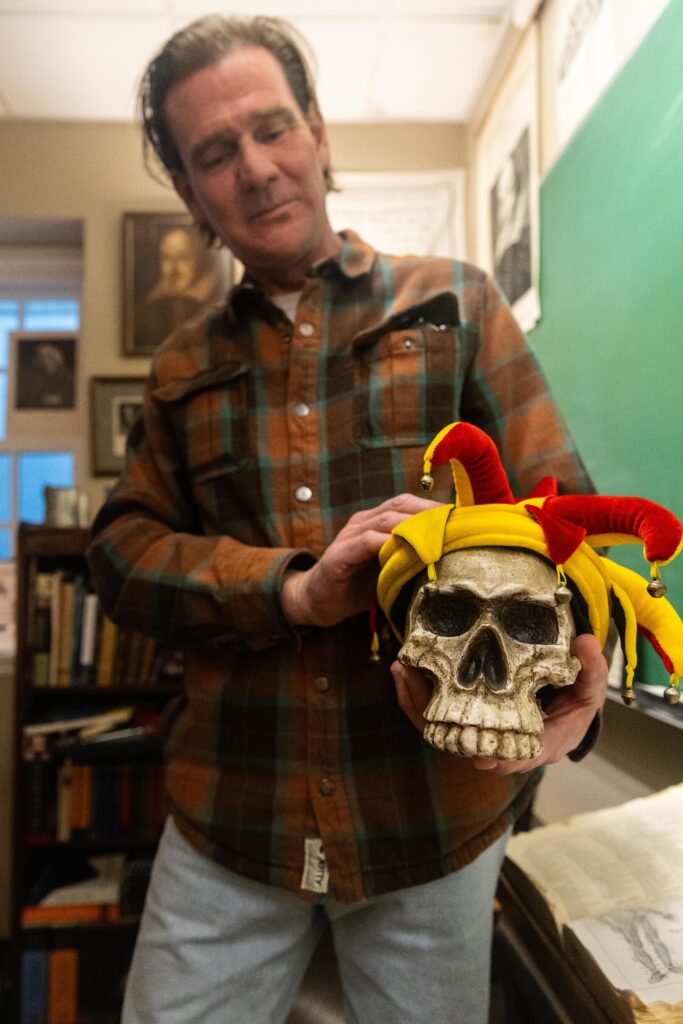
“When we’re studying Hamlet, this is Yorick’s skull — Yorick the jester. This jester’s cap came from Florence, Italy.”
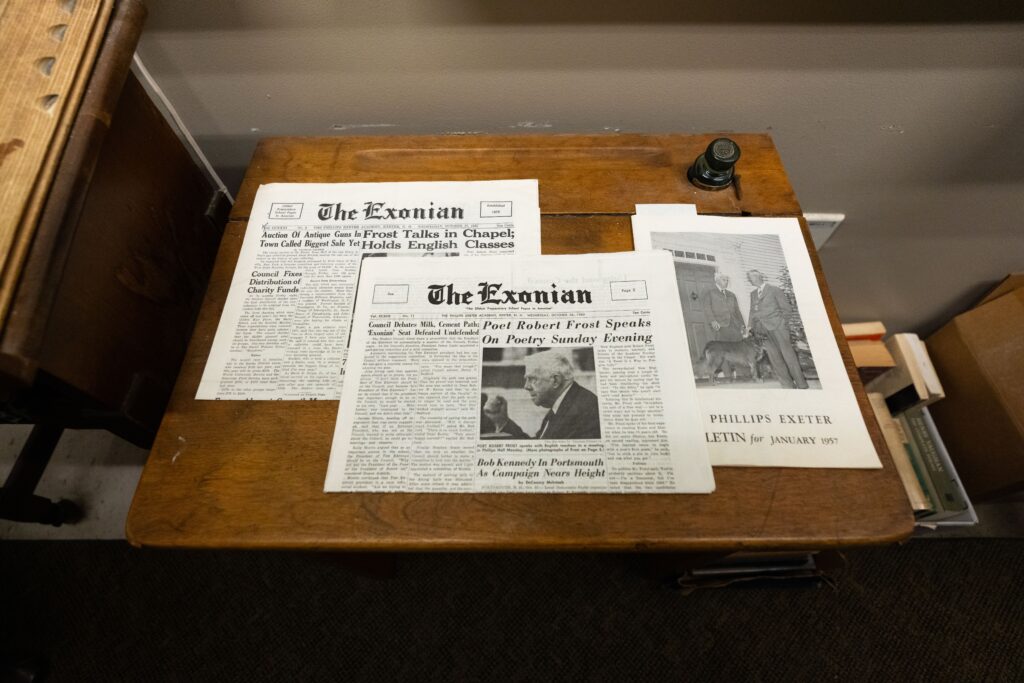
“Before Phillips Hall was renovated there was a departmental closet upstairs that was piled to the ceiling with ‘junk.’ They were going to throw it all away. What I found in there was amazing: old copies of The Exonian from Robert Frost’s visit to campus and a book he signed and dedicated to the English Department. He was a big friend of the English Department, and it would be common where you would come to class and your substitute teacher for the day would be Robert Frost.”
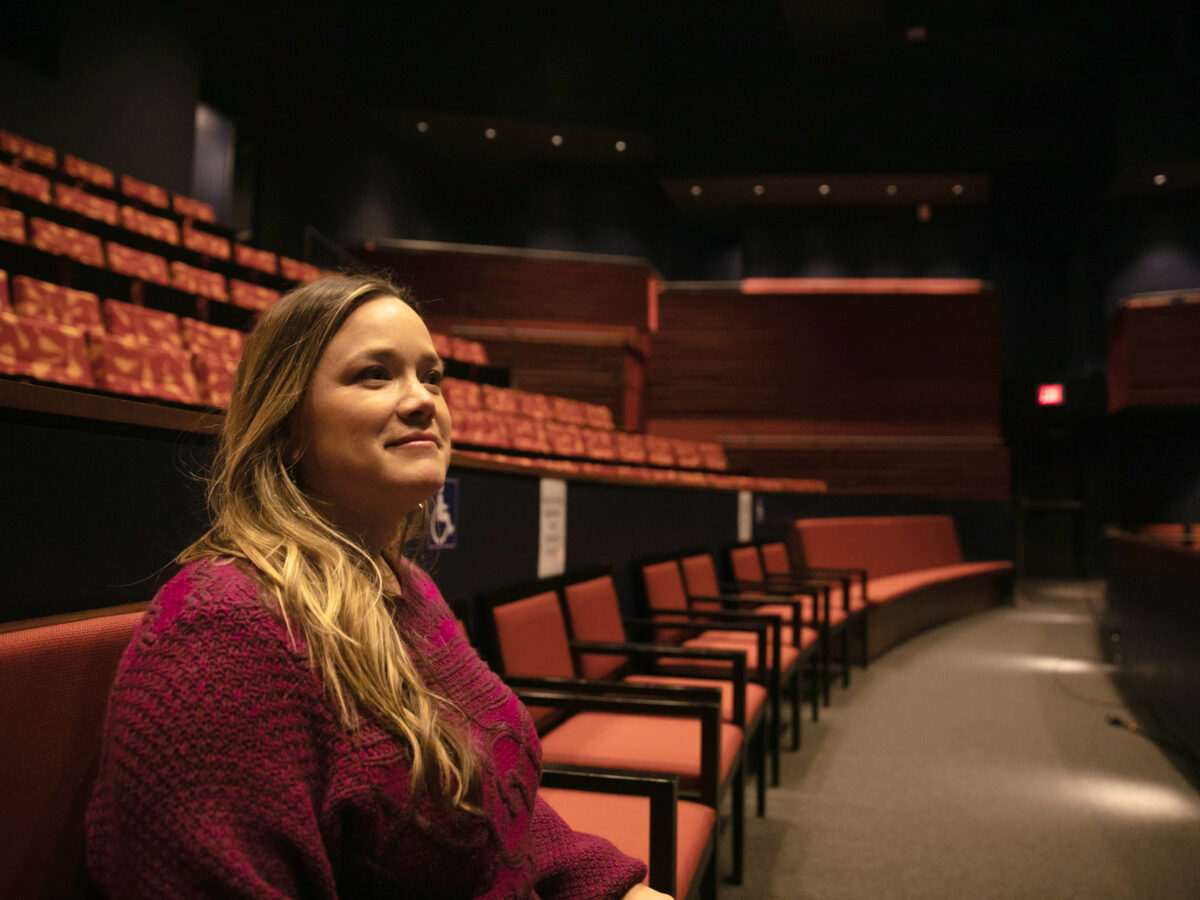
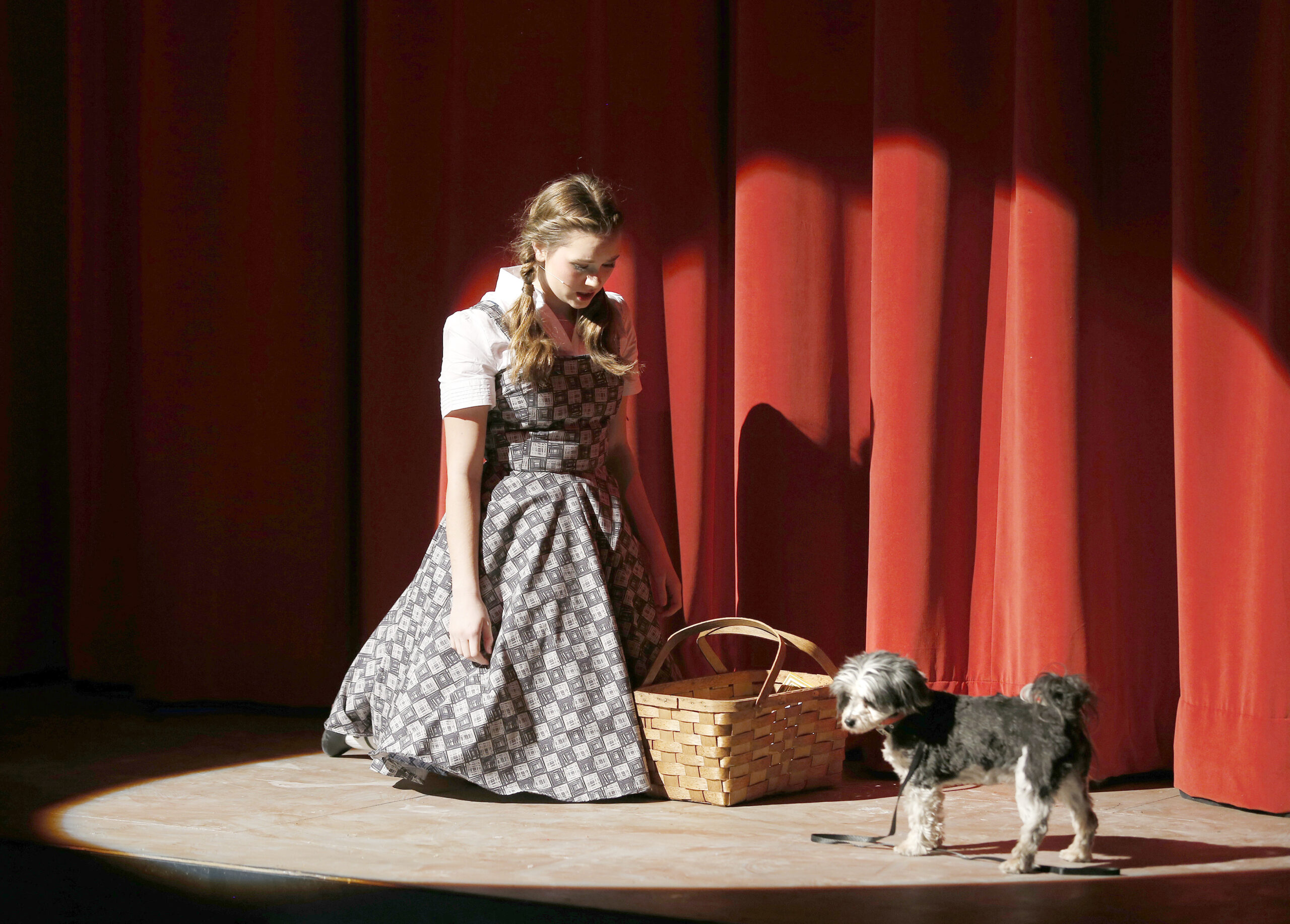
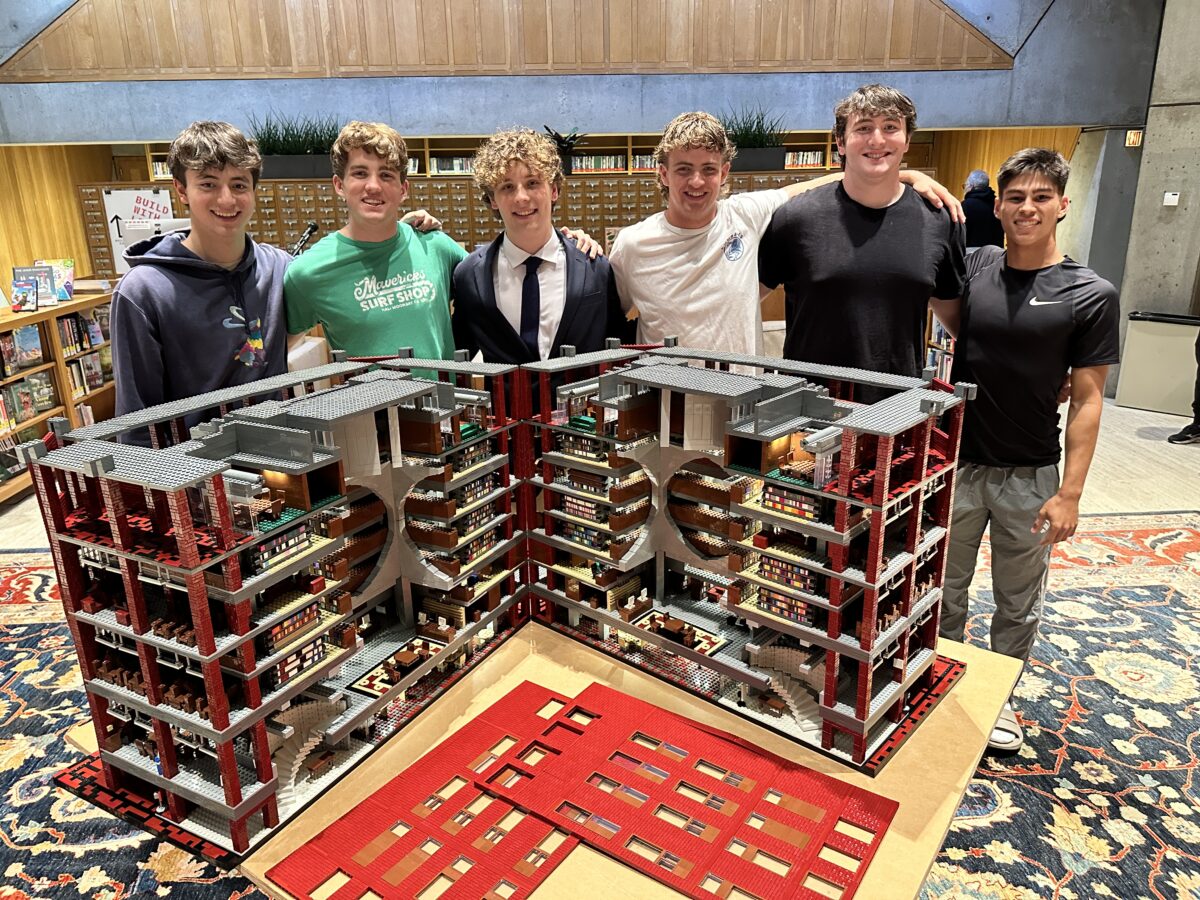

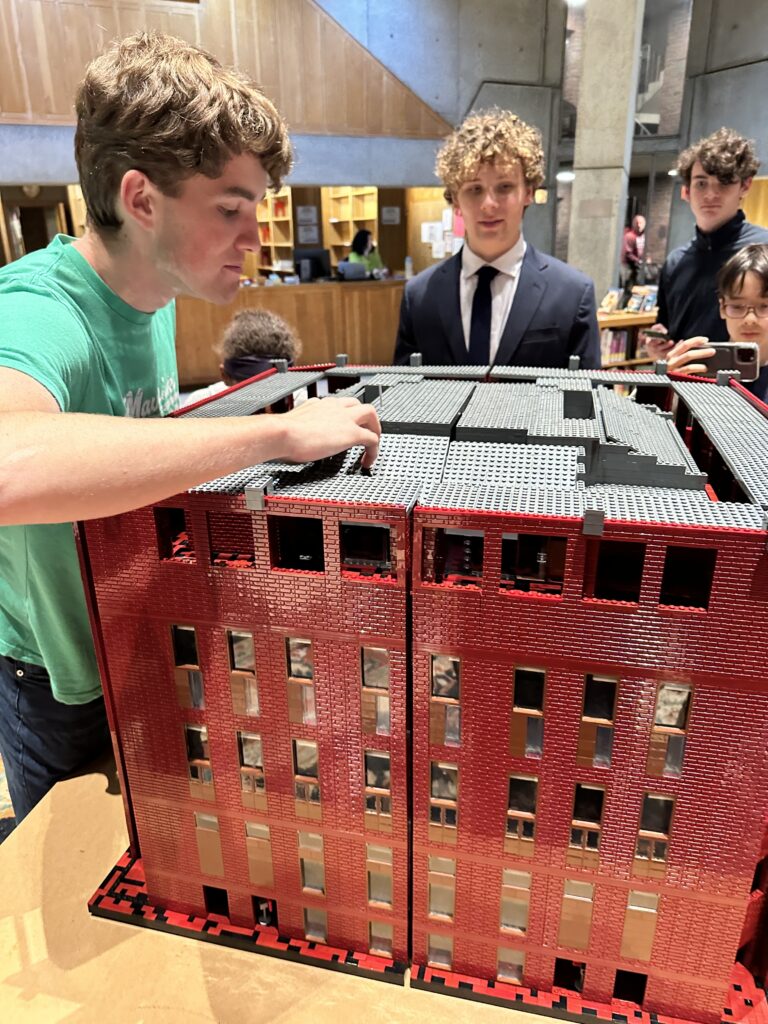


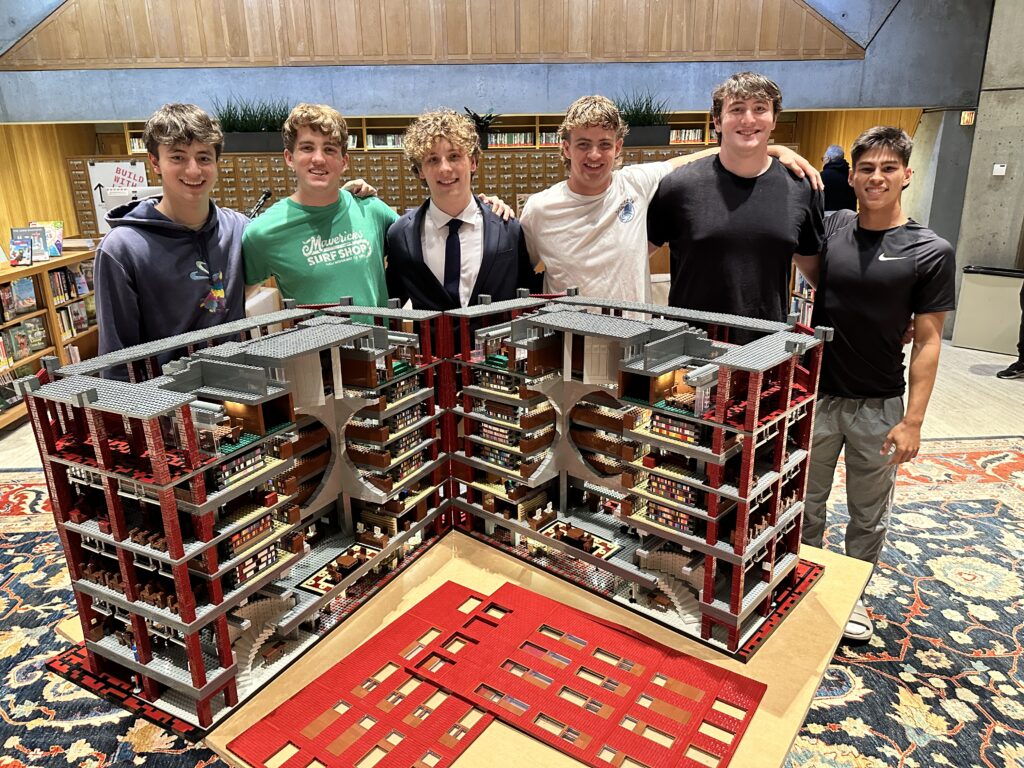
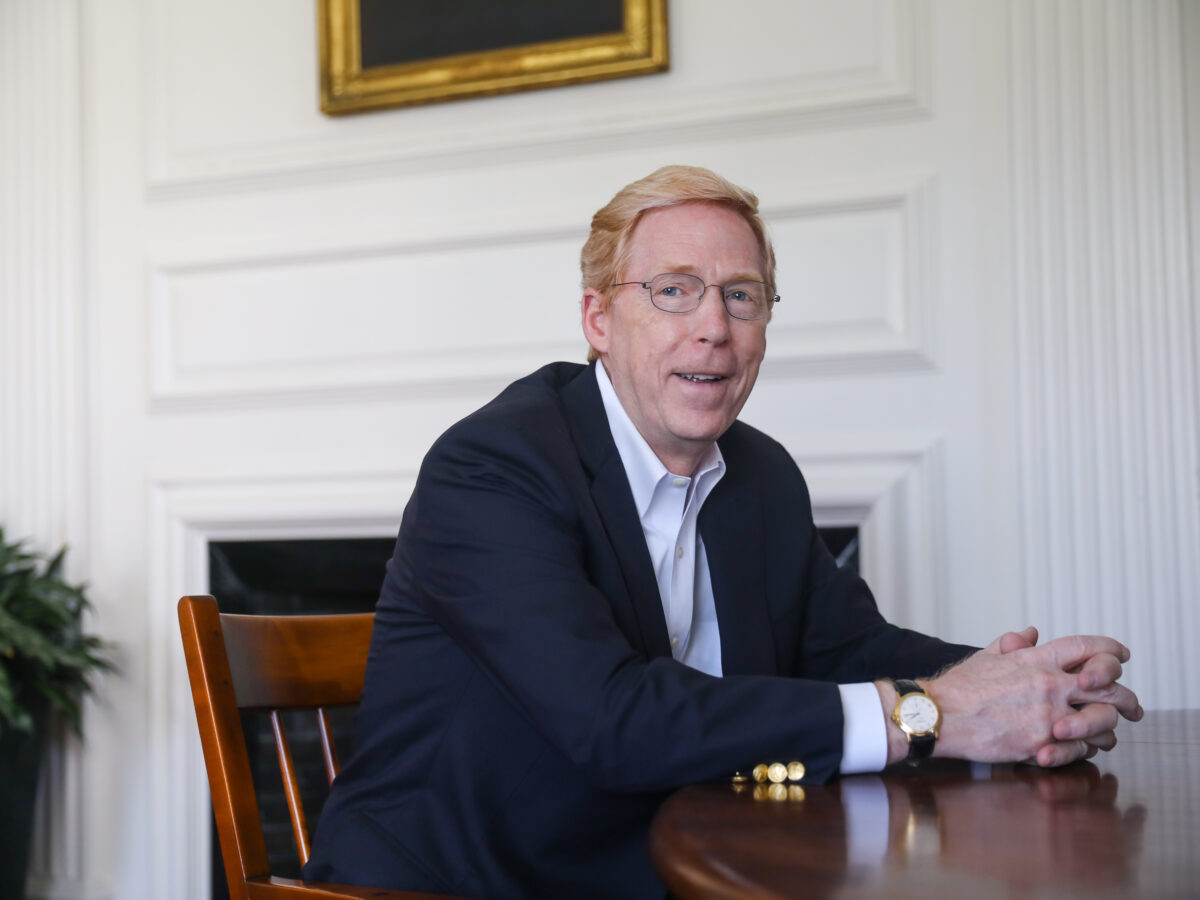



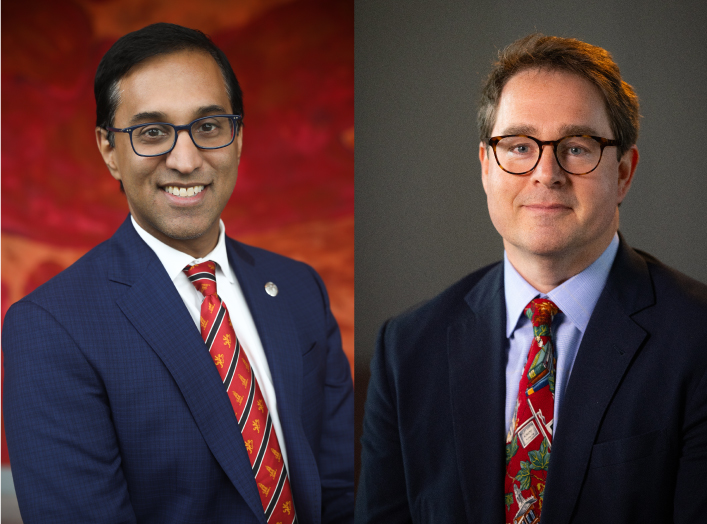
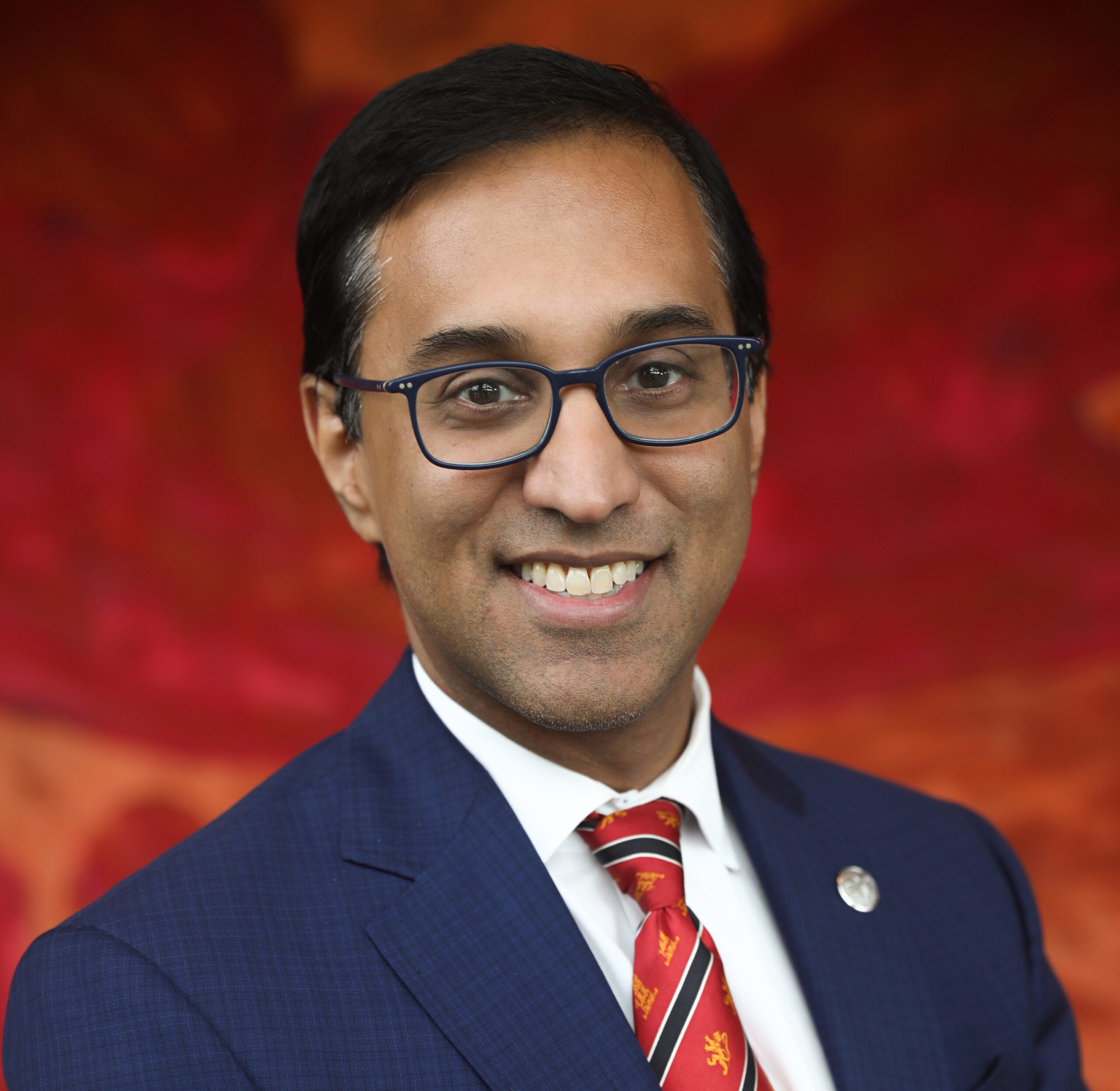 Dr. Sanjay Shetty ’92; P’23 is in his fifth year as an Exeter trustee. He is president of CenterWell, Humana’s health care delivery and services segment, overseeing its national primary care, home health, pharmacy and military business.
Dr. Sanjay Shetty ’92; P’23 is in his fifth year as an Exeter trustee. He is president of CenterWell, Humana’s health care delivery and services segment, overseeing its national primary care, home health, pharmacy and military business.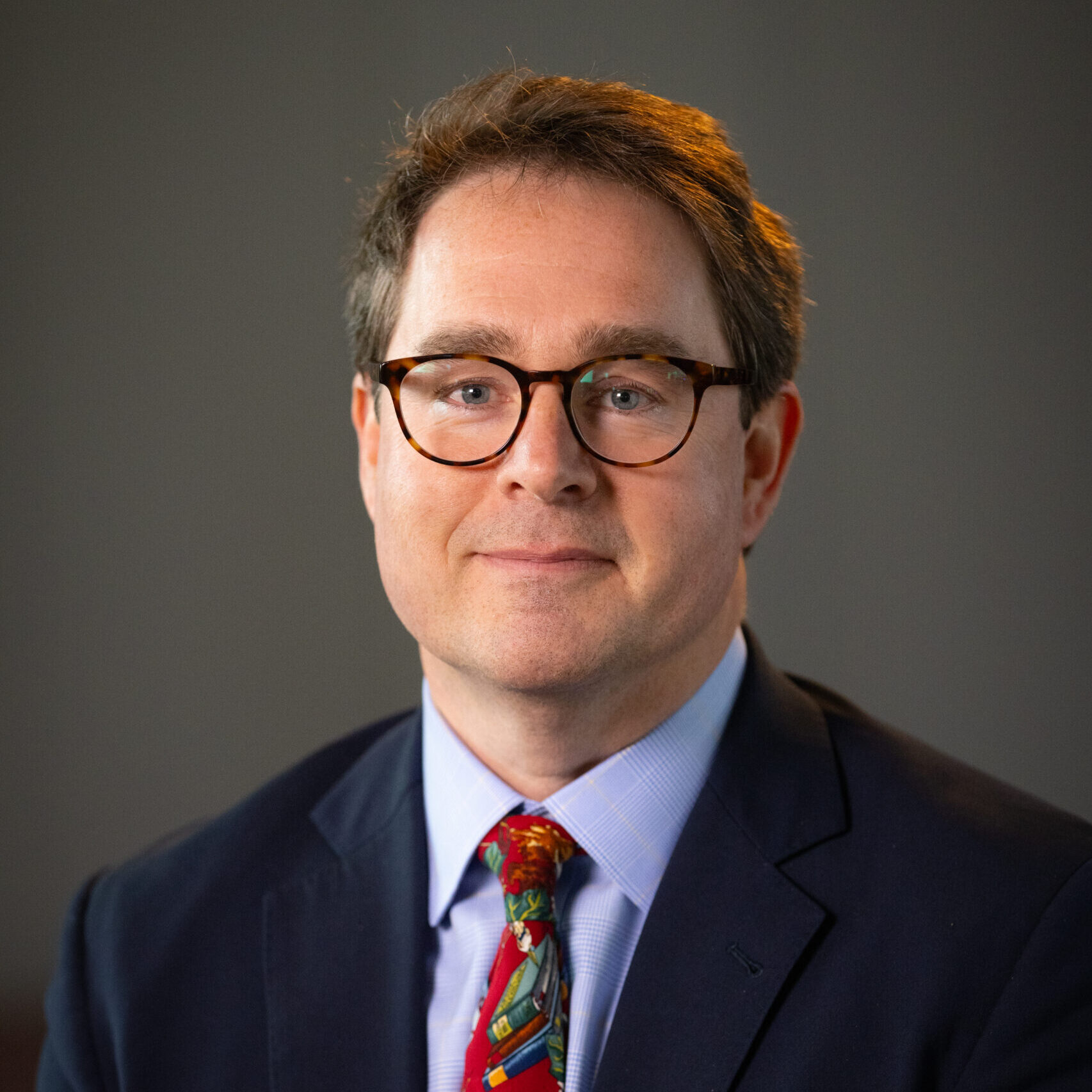 Sam Brown ’92 is president of the General Alumni Association and is serving his first term as an Exeter trustee. He oversees film and TV production and development as president of STX Entertainment.
Sam Brown ’92 is president of the General Alumni Association and is serving his first term as an Exeter trustee. He oversees film and TV production and development as president of STX Entertainment. Brown: I’ll speak about the things that stuck with me as topics of investigation. And I would point out that the Trustees are not having these conversations in a vacuum. There are discussions that are just Trustee only discussions, but those are, from what I just experienced, much more the exception than the rule. Principal Rawson is in most of these conversations as are representatives of the key departments within the Exeter community, and many of the discussions are based on presentations of these various department heads and representatives of the various aspects of the community.
Brown: I’ll speak about the things that stuck with me as topics of investigation. And I would point out that the Trustees are not having these conversations in a vacuum. There are discussions that are just Trustee only discussions, but those are, from what I just experienced, much more the exception than the rule. Principal Rawson is in most of these conversations as are representatives of the key departments within the Exeter community, and many of the discussions are based on presentations of these various department heads and representatives of the various aspects of the community.
